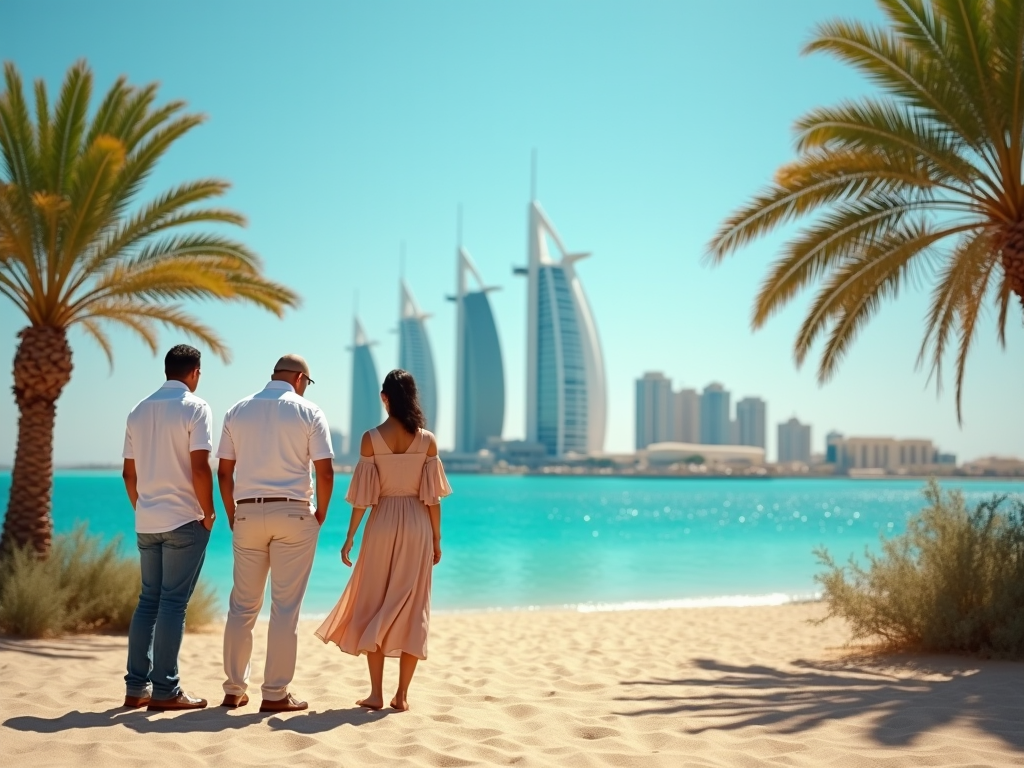Comparing Different Types of Residence Visas Available in Dubai
Dubai offers a variety of residence visas that cater to expatriates, investors, and skilled professionals. Understanding the differences among these visa types is crucial for anyone planning to live and work in this vibrant city. This article will delve into the various categories of residence visas, including their eligibility criteria, application processes, and unique benefits.
1. Employment Visa

The Employment Visa is one of the most common types of residence visas in Dubai. It is specifically designed for expatriates who have secured a job offer from a company based in the UAE. To obtain this visa, the employer typically sponsors the employee, initiating the application process. The maximum validity for an Employment Visa is usually three years, after which it can be renewed.
To apply for this visa, the following steps are generally required:
- Receive a job offer from a UAE-based employer.
- The employer applies for a work permit and submits necessary documents to the Ministry of Human Resources and Emiratisation.
- Once the work permit is approved, you can apply for the Employment Visa through the General Directorate of Residency and Foreigners Affairs (GDRFA).
- Undergo a medical examination and obtain health insurance.
- Complete the residency application process.
One of the significant benefits of this visa is that it allows expatriates to sponsor their family members for residency in Dubai, enhancing family unity. Additionally, it offers a pathway to obtain a UAE Golden Visa for skilled professionals in specific sectors.
2. Investor Visa

The Investor Visa is aimed at those looking to establish or invest in a business in Dubai. This visa encourages foreign investment by allowing investors to reside in the UAE while managing their investments. An Investor Visa can be granted for a period of two or three years, depending on the amount invested and the nature of the business.
To qualify for an Investor Visa, applicants must meet specific criteria:
- Invest a minimum amount in a UAE-based business (often around AED 2 million).
- Provide proof of investment through official documentation.
- Register the business with the relevant UAE authorities.
- Comply with all applicable legal and regulatory requirements.
This type of visa not only affords residency in Dubai but also grants the right to sponsor family members. Additionally, it opens the door to potential citizenship after a certain period, making it a lucrative option for serious investors.
3. Freelance Visa
The Freelance Visa is ideal for individuals who want the flexibility to work independently in Dubai. This visa type has gained popularity among digital nomads and remote workers. It allows individuals to legally reside and work as freelancers in various fields, such as technology, design, and consulting.
Applicants must meet these criteria to obtain a Freelance Visa:
- Provide evidence of freelance work or contracts.
- Register with a recognized freelance platform or establish a freelancer status with a relevant authority.
- Show proof of financial means to support oneself during the residency period.
The Freelance Visa typically has a validity of up to three years. One of its primary advantages is the ability to sponsor family members to live in Dubai, creating opportunities for family reunification in this diverse city. Additionally, freelancers enjoy the potential for tax savings and a dynamic work environment.
For international students wishing to pursue education in Dubai, the Student Visa offers a solution. This visa type allows students to reside in Dubai for the duration of their studies, which can range from a few months to several years, depending on the educational program.
To qualify for a Student Visa, applicants must meet certain criteria:
- Obtain admission to a recognized UAE educational institution.
- Provide proof of adequate financial resources to cover living expenses and tuition fees.
- Submit a health insurance policy that meets UAE requirements.
The Student Visa not only enables individuals to live and study in a vibrant educational environment but also provides the option to work part-time during their studies. Furthermore, upon graduation, students may have opportunities to transition to an Employment Visa, making it a valuable starting point for a career in the UAE.
5. Golden Visa
The UAE Golden Visa is a long-term residency visa that targets investors, entrepreneurs, and outstanding students. This visa grants a 5 or 10-year residency without the need for a local sponsor. It aims to attract high-net-worth individuals who can contribute to the UAE’s economy and society.
Eligibility typically depends on one of the following categories:
- Investors with significant investments in real estate or business.
- Entrepreneurs with innovative projects.
- Exceptional talent in fields such as art, culture, and research.
Golden Visa holders can sponsor their families for residency, ensuring long-term stability in the UAE. The visa also provides holders with the freedom to travel without the need for a local sponsor, making it a flexible and attractive option for expatriates seeking longevity in the region.
Conclusion
In summary, Dubai offers a diverse range of residence visas tailored to the needs of expatriates, investors, and families. Each visa type provides unique benefits and requirements, making it essential for applicants to choose wisely based on their circumstances. Whether you’re aiming for employment opportunities, entrepreneurial ventures, or educational pursuits, understanding the specifics of each visa type can greatly enhance one’s experience of living in Dubai.
Frequently Asked Questions
1. What is the process to apply for an Employment Visa in Dubai?
The application process involves receiving a job offer, obtaining a work permit from the employer, and finally applying for the residency visa through GDRFA, alongside medical examinations and health insurance.
2. Can I sponsor my family members with an Investor Visa?
Yes, Investor Visa holders can sponsor their family members, which is one of its key advantages for those looking to settle in Dubai long-term.
3. Is it possible to switch from a Freelance Visa to an Employment Visa?
Yes, individuals can transition from a Freelance Visa to an Employment Visa if they secure a job offer from a UAE employer.
4. How long is the validity of the Golden Visa?
The Golden Visa is available for either 5 or 10 years, depending on the category of eligibility.
5. What are the requirements for obtaining a Student Visa in Dubai?
To obtain a Student Visa, applicants must be admitted to a recognized educational institution, provide financial proof, and possess health insurance that complies with local regulations.


